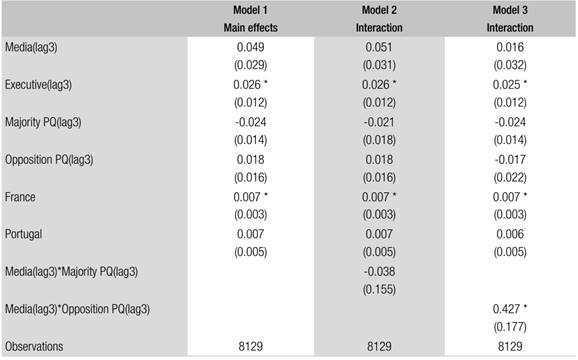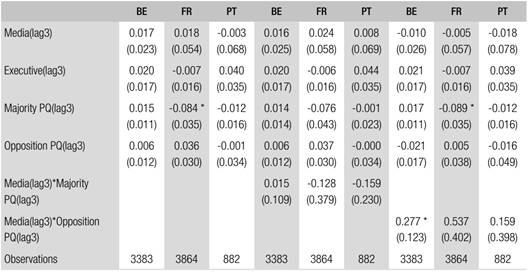Abstract
One of the functions of parliamentary questions in modern legislatures is to pressure executives to pay attention to specific issues. But can these questions effectively influence executive decisions? There is surprisingly little empirical research in this area. Adopting an agenda-setting perspective, this article examines the extent to which issue attention in oral parliamentary questions influences the issues addressed in the weekly meetings of the Council of Ministers in three countries (Belgium, France and Portugal). Our findings suggest that the agenda-setting power of parliaments vis-à-vis the executive is usually weak in the contexts studied here. In Belgium, we find evidence that the executive does pick up on issues debated in parliament but that the media seems to play a crucial role in focusing attention. These conclusions testify to the dominance of the executive power in many Western democracies. The findings also demonstrate that agenda-setting patterns are more complex than single-country studies often suggest, and that comparative research is the way forward.
Keywords:
parliament; parliamentary questions; executive; media; policy agendas

 Thumbnail
Thumbnail
 Thumbnail
Thumbnail
 Thumbnail
Thumbnail
 Thumbnail
Thumbnail
 Thumbnail
Thumbnail
 Thumbnail
Thumbnail
 Thumbnail
Thumbnail
 Thumbnail
Thumbnail
 Thumbnail
Thumbnail
 Thumbnail
Thumbnail
 Thumbnail
Thumbnail
 Source: Elaborated by the authors.
Source: Elaborated by the authors.

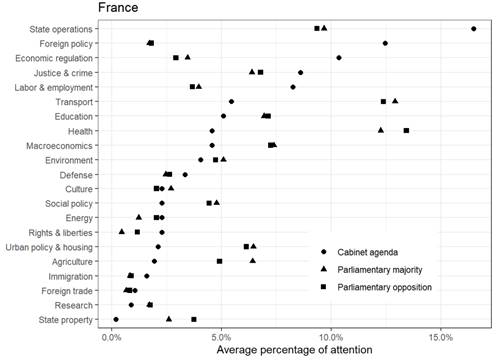
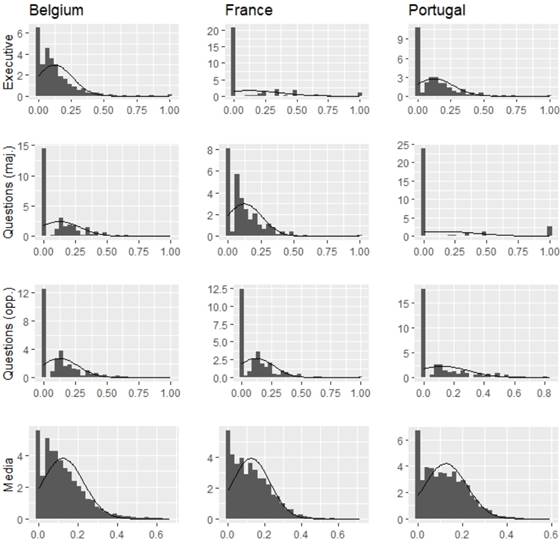 Source: Elaborated by the authors.
Source: Elaborated by the authors.

 Source: Elaborated by the authors.
Source: Elaborated by the authors.
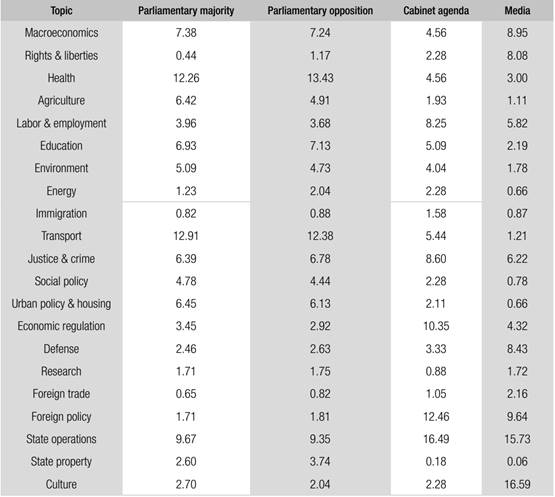 Source: Elaborated by the authors.
Source: Elaborated by the authors.


